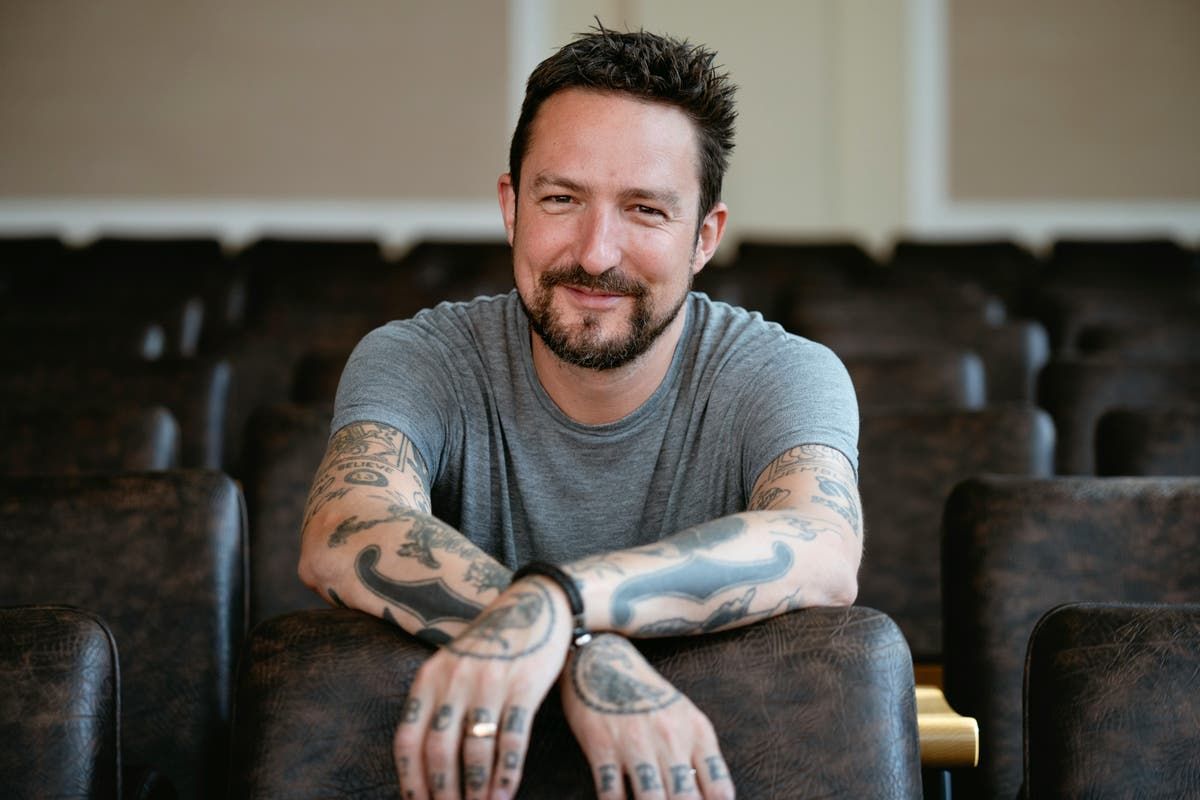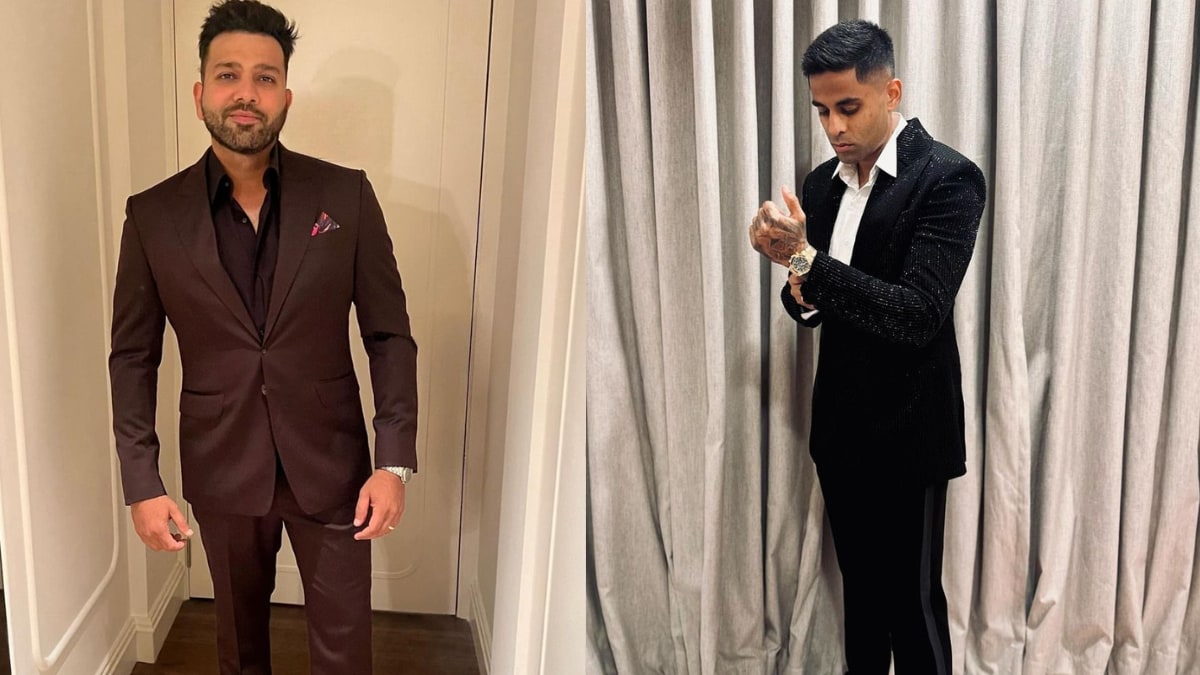Spending more than 25 years on tour is an impressive feat for any artist, but being on the road to your 3,000th concert when you're in your early forties is almost incomprehensible.
Punk-folk musician Frank Turner began racking up the miles in his lively adolescence when he began performing at age 16 at local venues. He later graduated to playing festivals and stadiums, becoming famous for his relentless schedule of tours and high-octane performances, often alongside his backing band The Sleeping Souls.
“It's something I'm absolutely sure I'm reasonably good at,” the 42-year-old says confidently of his shows.
“Being a writer, there is this strange mixture of extreme self-confidence and overwhelming doubt in a cement mixer forever.
“I wake up in the middle of the night and think that everything I've done is horrible and that I should stop writing once in a while. But I know how to put on a concert.”
Turner will show the US how it's done throughout the month of June before returning to the UK to play Glastonbury Festival and a series of UK tour dates. Each of them will mark another step towards his 3,000th show, which he will present at London's Alexandra Palace next February.
“I am aware that quantity does not equal quality,” he jokes during a video call from his home in Essex during a short break in his hectic schedule.
“But I hope to be reasonably good at playing shows after 3,000 of those damn things.”
The singer-songwriter, from Meonstoke, Hampshire, first released two albums with post-hardcore band Million Dead before deciding to go it alone in 2005. His 2007 debut, Sleep Is For The Week, and its 2008 follow-up, Love Ire & Song helped circulate his name among fans and critics, but after greater success with his third and fourth albums, he began to land more prestigious spots at festivals and concerts.
The Recovery singer has continued to climb the charts, with his last five albums reaching at least number three, and his newly released tenth album has followed suit.
“I spent quite a bit of time thinking about double figures,” he says of his latest release, titled Undefeated.
“I'm proud of it and also a little surprised.
“I just think, 'Hey, does it still work? What is happening?'. “I think forty-two is not an inherently punk or sexy age.”
He spent a lot of time considering the album title, delving into thesauruses and playing word association games for inspiration, but finally found it by rewatching the 1980 biopic Raging Bull about the late boxing champion Jake LaMotta.
Asking for help is a sign of strength rather than a sign of weakness.
Frank Turner
“What I like about the word undefeated is that it doesn't necessarily mean that you're the world champion, it doesn't mean that you're the best, it just means that no bastard has knocked you down yet. and I think that's what I feel,” he explains.
“I don't want to spend a lot of time fuming, but surviving to the point of making 10 albums, 26 years of touring in total and everything in between, it didn't fall out of the blue for me.
“There are times when it's been difficult to do this.”
Turner has faced her own share of trials over the years, with social media scrutiny and battling serious addiction issues being major challenges in her life.
He speaks openly about his struggle with substance abuse, which he believes is summed up in the lyrics of The Hold Steady: “It started as something recreational and ended as something medical.”
“People use the expression 'party' to refer to taking drugs,” he reflects. “And the longer I have lived, the more bitterly ironic it seems to me.
“It wasn't much of a party when you're selling things you own, you go to the hospital and you bleed a lot, and you don't sleep for days and days, and you ruin your relationships.”
He's happy to say those days are behind him after seeking help and finding cognitive behavioral therapy (CBT), but he remains aware that addiction can resurface.
“In my opinion, asking for help is more a sign of strength than weakness,” he says. “Or at least, I think that's how we should frame it as a society.”
“Because I think it took me a long time to admit that I needed help and get over myself enough to ask someone for help.
“And when I say someone, I specifically mean professionals (therapists, medical professionals, whatever), but it can include just talking about it with someone.”
While being on the road is where you feel most comfortable, it can often be a high-stress environment that tries to suck you into the clichés of the rock 'n' roll lifestyle. It also served as an escape route to address deeper issues within his mind and his past, such as when he was kicked out of his house when he was eight years old.
“For a long time I thought, 'Music is my therapy and I don't need anything else,'” he says.
“It took me a long time to realize this, but music is a necessary, but not sufficient, part of my mental health toolkit.”
Many others may have left the industry while facing these challenges, while a large number of artists who came up with Turner never made it to the mainstream.
Do you attribute your longevity to your personal resilience?
“Stubborn might be a better way to put it,” he says, laughing.
“I don't really want to do anything else and I don't really know how to do anything else.
“I'm not going to starve if I don't tour and play shows, I'll figure it out, but this is what I want to do.”
He recorded the new album and produced it himself from his home studio on Mersea Island, Essex, where he lives with his wife when not traveling around the country.
As he moves into his fifth decade, his writing evolves from youthful candor to surviving midlife challenges such as fading friendships, mental fallout, and nagging back pain.
Turner has also been working and producing for emerging bands, which he says has inspired him when writing his new music.
What pearls of wisdom do you have for groups?
“It's one thing to go to bed,” he says from experience, before adding: “I'd say trust your instincts.
“There's no point in doing all this shit if you're following someone else's creative instincts.
“If you're a writer, if you're a creative person, why bother doing all this if you're going to sacrifice your artistic integrity? In short, it is a fool's deal. It's a waste of time.”
Frank Turner's Undefeated album is out now and his UK tour dates begin on July 6.












